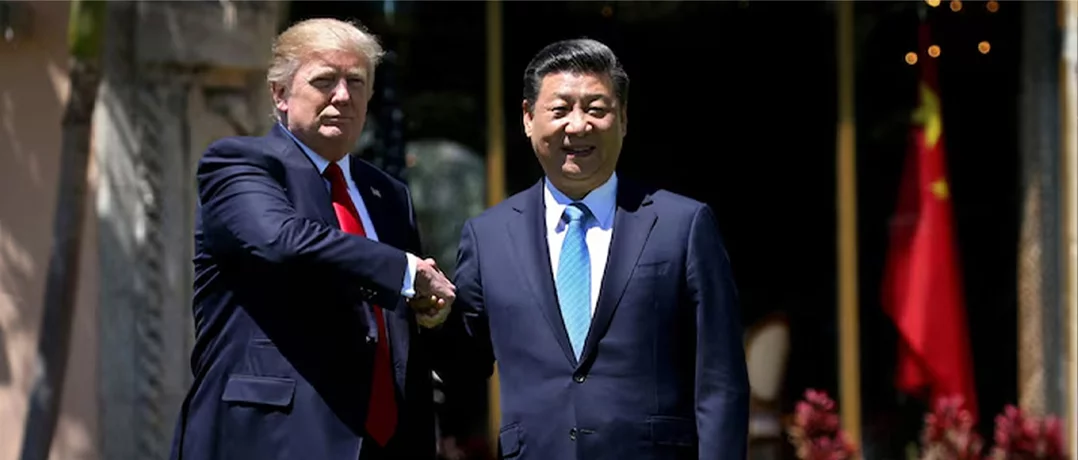The upcoming Trump-Xi summit will tackle the trade war, Taiwan dispute, and Russia-Ukraine conflict.
Trump and Xi to hold first meeting in six years at APEC summit
Trump and Xi to hold first meeting in six years at APEC summit


US President Donald Trump and his Chinese counterpart Xi Jinping are expected to meet in South Korea this Thursday on the sidelines of the of the Asia Pacific Economic Cooperation (Apec) summit. Should the meeting occur, and not be canceled similar to what occurred with the Trump-Putin summit in Bucharest, it would mark the first time that the two leaders sit down with one another in 6 years.
From here, Putin and Xi will most certainly tackle critical issues that have strained their countries’ relations.
The ongoing trade war
On the top of the agenda will surely be the ongoing trade war between the US and China. The two have been witnessing an intense rivalry since Trump’s first term, however as the latter returned to office in January, the situation escalated dramatically. Upon his arrival to the White House, the US President enforced several tariffs on China, while the latter retaliated with reciprocal measures vis-a-vis its counterpart. Things have also escalated with Beijing initiating consequential export controls on vital rare earth elements (REEs), requiring foreign companies to obtain government approval to export any products that contain Chinese-sourced rare-earth minerals or that use Chinese extraction, refining, or magnet-making technologies, thus signaling a massive blow for American industry. This prompted a US threat to impose additional tariffs of 100% on China starting November 1.
The intense trade war between the two rival powers has had consequential impacts on the global economy and supply chains (especially with regards to REEs). Therefore, both presidents will be addressing this pressing issue, in hope to achieve a suitable compromise that might alleviate tensions and reassure markets.
The Russia-Ukraine war
The war that has erupted between the two neighboring countries, Russia and Ukraine, in February 2022 has attracted considerable attention and involvement from various notable powers worldwide. Among the prominent actors are the US and China. China has been accused of aiding Moscow in its war by assisting it evade imposed sanctions. It has continuously purchased Russian oil in cheap prices and refrained from implementing or forcing any punitive measures against the Kremlin. Instead, the two have significantly strengthened their relations, signing numerous cooperation agreements during Russian President Vladimir Putin’s last official visit to Beijing (including the long-delayed Power of Siberia 2 gas pipeline from Siberia through Mongolia). These have not only enhanced their relations, but the leverage that Beijing has with regards to Moscow.
The Trump administration, meanwhile, has been keen to advance peace negotiations between Moscow and Kyiv. Trump himself has long boasted about his capability of ending wars throughout the world, including the jewel in the crown: the Russia-Ukraine War. Therefore, Washington might well rely on China’s influence to help soften some of Russia’s demands. It might also discuss the recent US sanctions of two prominent Russian oil companies, which Beijing opposed and condemned.
The Taiwan dilemma
Similar to almost every US-Chinese discussion, the issue of Taiwan will certainly be on the table.
China has been firm on its viewpoint regarding the island. Since 1949, the mainland has always considered it part of its own sovereign territory, while many Taiwanese have rejected being absorbed in what they perceive as a distinct and alien political and economic system. Beijing has set a timeline for unification with Taiwan by linking “reunification” to the goal of “national rejuvenation,” which is to be achieved by 2049. As time passes and the deadline draws closer, the situation and Chinese-Taiwanese relations intensify as well.
On the other hand, the US has long held a policy of “strategic ambiguity,” refraining from announcing any commitment to defending or not defending the self-proclaimed island. Washington only recognizes China’s People’s Republic of China (PRC) since 1979, but continues to deliver controversial diplomatic and military aid to Taiwan’s Republic of China (ROC). According to President Trump, this contentious issue would be among the topics discussed with Xi.


